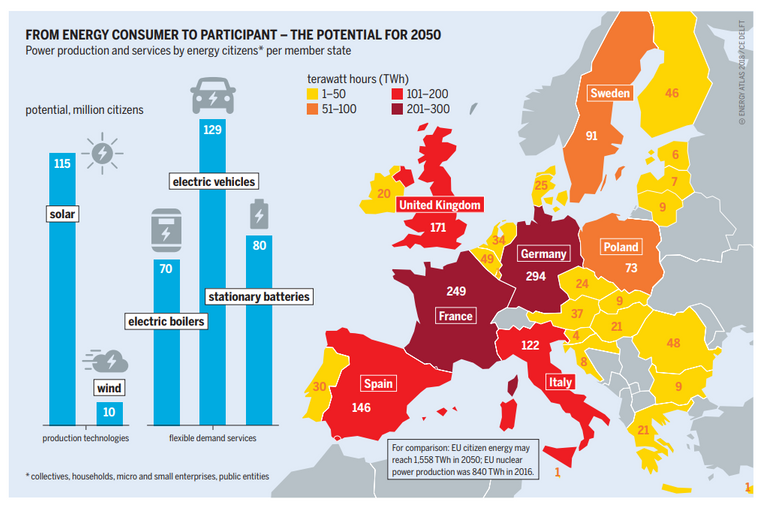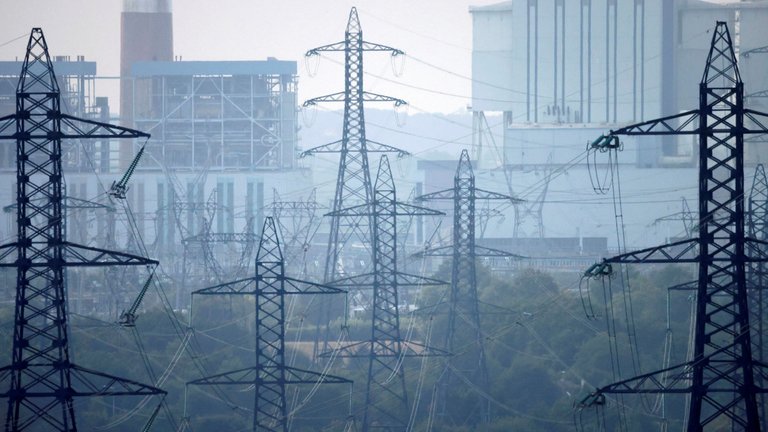The energy crisis continues to cast a shadow over the internal situation in Europe, in the midst of Russia moving forward with stopping its gas supplies until the West lifted its economic sanctions through which it wanted to pressure the Russian regime to stop its military operations in Ukraine.
In the latest comment on the repercussions of the energy crisis on the internal situation in Europe, the Hungarian Prime Minister, Viktor Orban, warned that the continent may witness a halt to the work of 40 percent of its industries in the winter following the Russian decision.
Moscow reduced flows through the pipeline to 40 percent in June and 20 percent in July, after the Russian gas giant, "Gazprom", announced the complete suspension of deliveries via the Nord Stream gas pipeline.
In light of the effects of the energy crisis on several sectors in the eurozone, European governments are placing hopes of their exceptional measures to protect families and companies from the repercussions of the Russian move that pushed energy prices to record heights, and to face widespread protests in their capitals.
In a research paper by the European think-tank Bruegel, which specializes in economic policies, Europe's energy system is facing unprecedented pressures not seen since the oil shocks of the 1970s, but European governments tend to choose uncoordinated measures that prioritize national security for supply and affordability. on an integrated European approach.
The paper explained that subsidizing energy consumption instead of reducing demand has been a common approach during the past period, but governments risk that subsidizing energy consumption will become unsustainable, eroding confidence in energy markets, and slowing down the necessary measures in the face of Russia.
The prominent European Center suggested that the current crisis will leave behind a radically different system, but the form that this system will look like is still undetermined so far, and this crisis may hinder Europe’s efforts to control energy markets during the next 18 months and reduce greenhouse gas emissions significantly. large by 2030.
The economic impact of the current gas crisis will be direct during the next winter, according to what the director of global macroeconomic research at the British National Institute for Economic and Social Research, Corrado Macchiarilli, told "Sky News Arabia", explaining that the accompanying increase in gas prices could lead to higher inflation. By about 2 percentage points on average in 2022 and 2023, based on our most recent estimates.
He explained, however, that some of these effects can be mitigated by securing alternative supplies and energy sources, easing infrastructure bottlenecks, while encouraging energy savings and protecting vulnerable families.
But there is still a problem of coordination among EU member states, as the picture becomes more complicated when one looks at the complexities of the various EU economies, as well as the technical and geopolitical questions surrounding the issue of replacing Russian energy exports, according to Macchiarelli.
"Based on our latest global economic outlook, when we consider the complete moratorium on Russian gas as of the third quarter of 2022, the balance of risks to GDP growth in Europe remains significantly downward, reflecting our view of greater risks to higher prices," he said. Energy and more trade restrictions on Russia."
Repercussions affect everything
In turn, the expert on Russian affairs and political economy residing in Paris, Ahmed Ismail, said in statements to "Sky News Arabia" that the lack of energy supply contributes to the increase in prices, as it directly contributes to the production of many food and consumer products, cars and machinery. And anything that needs energy to produce it, so the more energy you cost, the higher the energy prices, the higher the price of the final product, and thus this is reflected in general inflation.
According to the European Union statistics agency "Eurostat", annual inflation in the eurozone countries rose to 9.1 percent last August, compared to 8.9 percent in July of this year.
Ismail explained that the interruption of Russian gas supplies comes at a time when major energy importers such as Germany were unable to fill their storage capacity to the maximum levels, as several countries such as Germany, France and Italy asked companies or government buildings to reduce their energy use, and reduce the temperature of Heating during the winter.
French President Macron called on companies and families to try to reduce their consumption by up to 10 percent, which threatens the occurrence of power outages in France during the next winter.
According to European governments, support measures for European families could provide at least 376 billion euros in government aid this winter to stem the rise in electricity bills.
Fears of immigration
In the context of the direct effects of the crisis, observers expressed their fear of an increase in immigration rates from Europe to the countries of the southern Mediterranean and warmer regions during the coming winter.
The political economist says that it is currently not possible to talk about a significant increase in immigration from Europe, but it is possible that social problems such as demonstrations, needs, possible violence and civil unrest will occur, perhaps by the end of 2022 or the first half of 2023..


The entire world is now suffering the consequence of the energy crisis. And let's no talk about the massive wheat grains retained all over Ukraine since the invasion begun. Winter is really coming and with it, the potential risk of entire cities frozen by the weather, starvation and of course, like you say, energy undeniable crisis. Good work, my friend.